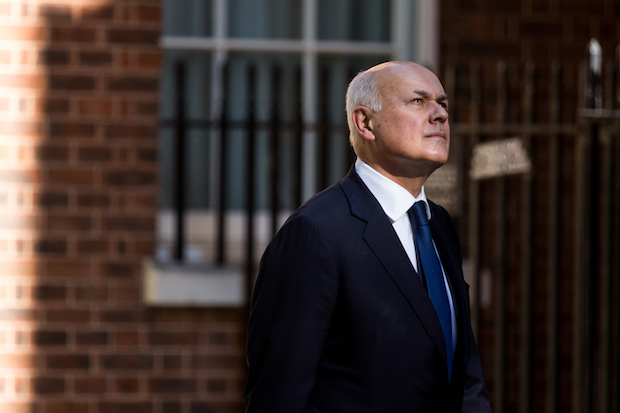Yesterday, the Daily Telegraph disclosed that George Osborne was planning to open a second front in his rather bizarre confrontation of the working poor by raiding Universal Credit, the government’s new welfare-to-work scheme. Today, the Times reports that Iain Duncan Smith might resign if this goes ahead.
Friends of Mr Duncan Smith escalated the row, saying that he would quit rather than carry out cuts he believes would wreck universal credit. “The Treasury have come after UC [universal credit] at every fiscal event and Iain has made clear every time that this is a red-line issue for him. That is the case now as it has been in the past,” one said.
This is a worrying development, particularly it may make the Chancellor even more likely to press ahead with calamitous cuts to UC.
The Chancellor has never held IDS in very high regard, as we find out from each fresh book published on the government. He is mistrustful of the idea of welfare reform being out to save lives, rather than money. Janan Ganesh’s biography of Osborne details how he suspects IDS has been unduly influenced by religion:
‘Osborne questioned the analytical rigour of the Christian conservatives who hovered behind the [welfare reform] project. “He thinks the people pushing this are such total advocates and evangelicals that they blind themselves to any downside,” said a colleague. Many in the Treasury still regard welfare reform as an ‘unexploded bomb’ underneath the government.’
The only explosion that followed welfare reform was one of job creation: two million people, the fastest job-creation rate in British history. But that didn’t really improve relations between the two. Osborne still dislikes what he regards as the pious tone of IDS’s reforms, and his decision to protect pensioner benefits means that working-age would be in his sight. Osborne has already jacked up the strivers’ tax (the effective tax rate for those on Universal Credit) from 55 per cent to 65 per cent. He’s now thinking about 75 per cent, hence the talk of resignation: at this point the whole rationale behind UC is pretty much destroyed. Who would work at a 75 per cent tax rate? As David Cameron put it (when denouncing the old Labour system) what kind of incentive is that?
But IDS, for his part, hasn’t done much to improve relations – he has no concern about his career, no hopes for promotion or another brief. As I once put it, he wants to reform welfare or die trying — now, having done one, he may well try to do the other. I hope not. He still has much to contribute, his baby might still be strangled at birth and and Universal Credit – an idea to which we devoted a Spectator cover story long before it stood a chance of being government policy – may perish without his support.
So I hope both can work this out. Osborne’s critics need to remember that, without him, IDS would not be in government – it was the Chancellor’s idea to hire IDS and give a coalition the radicalism it needed. Without Osborne – and his now-departed aide Rupert Harrison – Universal Credit would never have got off the ground. For all the tension between them, IDS and Osborne have achieved a huge amount together. It can be hugely tempting to walk out of government in a pique, especially during spending review negotiations, but I hope IDS doesn’t succumb to that temptation.
Join The Spectator’s Andrew Neil, Fraser Nelson and James Forsyth on 26 November to discuss George Osborne’s Autumn Statement and any surprises the Chancellor might have in store. Click here for more information and to book tickets.








Comments